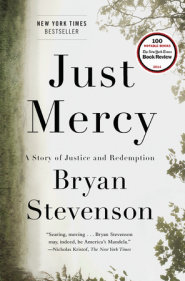Echo is your grandmother’s lemon bars captured in a chapter book – separate layers that when eaten together form a luscious composite of sweet sugar, tart lemons, and crunch all topped with powdered sugar that together surprise your tongue. In Echo, the layers are the three separate stories of Friedrich, a German prodigy, Mike, a Pennsylvania orphan, and Ivy, a bright, worried California girl. Their tales blend via a magical harmonica and a fable from the past that involves a promise and a prophecy.
Author Pam Muñoz Ryan’s award-winning children’s books, including Esperanza Rising, The Dreamer, Paint the Wind, and Becoming Naomi León, are all narrative treasures but Echo is surely her magnum opus. Echo combines a fairy tale, the three narratives, and music to form a wonder of a classic, yet fresh, novel that will enchant children ages ten to fourteen and their parents and teachers.
The story begins, as so many great fables do, in a dark forest where a boy is reading a book with a title containing his given name: The Thirteenth Harmonica of Otto Messenger. When Otto gets lost in the forest, he meets three mysterious sisters who are under a witch’s curse, receives a special harmonica, makes a promise, hears a prophecy, and returns home to become the messenger and break the curse.
Many, many years later in 1933 in a German town near the Black Forest, Friedrich, the musical prodigy with an unusual birthmark, works alongside his father in a harmonica factory where he discovers an older version of the Marine Band model the company exports to America. It contains a tiny red letter M. The harmonica has a “rich, ethereal quality . . . the more he played, the more the air around him seemed to pulse with energy. He felt protected by the cloak of the music as if nothing could stand in his way.” Protection may be what Friedrich needs when his beloved sister comes home from nursing school saying that she believes in Hitler and what he stands for and others in his town want to remove him and his imperfection.
Meanwhile in Pennsylvania in 1935, Mike Flannery and his younger brother are starving and fearful in an orphanage. They have nothing except the love of music passed down from their Granny when they land in what seems like a great opportunity. The brothers soon receive harmonicas and Mike’s seems different. It has a small, red, hand painted M on one edge and when Mike plays it “the world seems brighter, with more possibilities.”
Later in 1942 in Fresno County, California, Ivy Maria Lopez receives a new harmonica with a tiny red M on one edge. When she plays it her teacher asks her to perform a solo of “America the Beautiful” on the radio with her class, but her family must move to a farm near Los Angeles. Her new school segregates the Latino children in a separate school with no orchestra, but Ivy has high hopes even when she learns of another injustice.
How will the magical harmonica link these stories and will Friedrich, Mike, and Ivy ever achieve their dreams? Children and adults will savor the delicious blending of these tales into a superb conclusion.
In an interview with Publishers Weekly, Muñoz Ryan said, “Echo is about how music illuminated my characters’ lives during a very bleak time. I think most of my books are about these journeys where the characters have to grow and change drastically, whether the journey is an emotional one or a physical one. And if you look back to Esperanza Rising, even during the darkest time in her journey, there was always something inside her giving her the determination to carry on. I hope that the reader will enjoy the book for the story’s sake, but also that something will remind them that even during the darkest times, something pure and beautiful exists. Like music. "
Summing it Up: The magic of this fairy tale combined with carefully told twentieth-century history will captivate chapter book readers as well as their parents and teachers. The triumphant crescendo of an ending ties the story together in a most satisfying and glorious way. Children’s historical fiction is sometimes bland and saccharine, but Echo is a John Philip Sousa, brass band, cymbal-clapping winner that everyone over the age of ten will love.
Rating: 5 stars
Ages 10 - 14
Category: Fiction, Five Stars, Peanut Butter and Jelly, Pigeon Pie, Super Nutrition, Book Club
Publication date: February 24, 2015
What Others are Saying:





